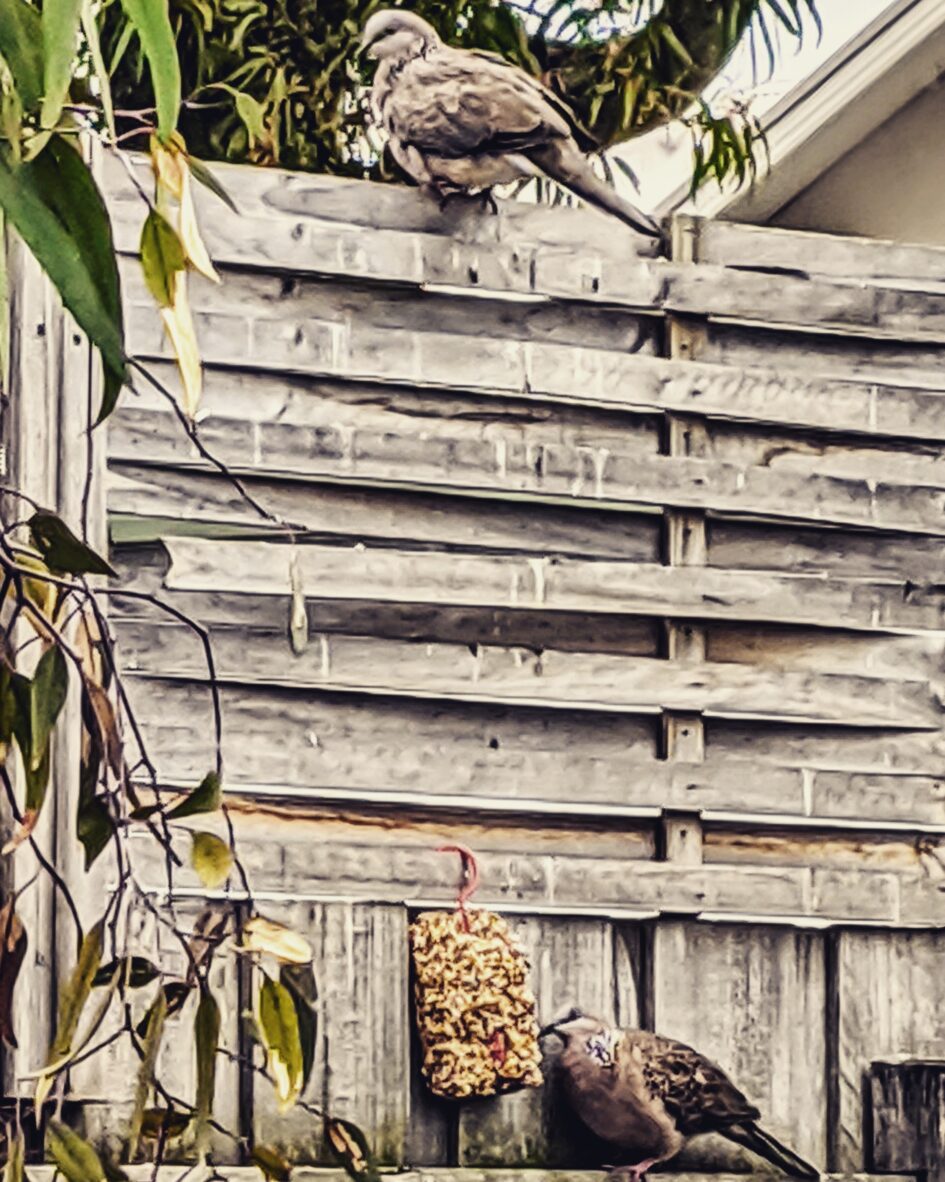By Dr Tess Ryan
At traumatic times like these, taking time to observe and connect with others can be healing, writes Dr Tess Ryan, as part of the occasional #CroakeyEXPLORE series.
My mind is where I am trapped; rooms of thought, all crowded and stifling, immobilise my body. Trying to write, to produce and be present while feeling exhaustion is a strange dichotomy. My physical and mental health have taken a toll during the COVID crisis and I don’t think these things are temporary. Chronic illness has a way of debilitating you to exhaustion, and knowing we are facing more time in lockdown even more so.
There are strategies – rest, eat well and acknowledge joy. But the one thing that slows down those flung open doors for me is watching the life going on in my backyard. Each morning I wake to watch my companion: Freddie.
Freddie is named such as I do not know their gender, only their type. Two Spotted doves, Freddie, or Fred or Frederica, all grey and mottled, serious and inquisitive. Freddie seeks respite in my backyard, and in doing so I seek respite in watching them.
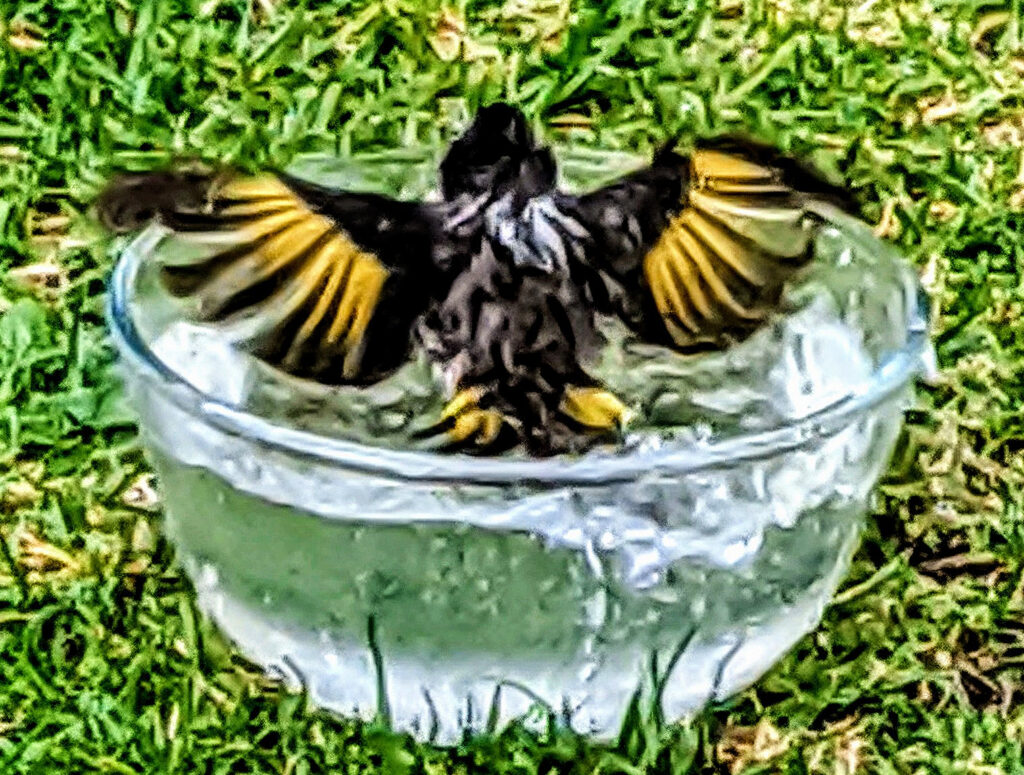
The other day Freddie drank from one of the bowls of water on the grass, and while previously I was lost in thought – five different things that did not relate to each other – suddenly I focused intently on the birds as they drank, their grey bodies reflecting blurrily in the water. Such a simple act, to watch a bird swallow water, see them delicately place their head inside that liquid.
Some days Freddie will dunk their head full inside, covering their eyes with the water so as to feel it wash off their day. This day saw Freddie only peek in, they mustn’t have wanted much, only a sip. The water must have then trickled down the back of their throat, as I watched in awe of the muscles contract, covered in feathers as they swallowed. I felt love.
Love (when I watch Freddie) is about peace, stillness, being. I feel at once like the air is pure, like I can breathe because most of the day I am not really breathing, I am panting. I feel a stilted and jarring feeling in my joints and muscles, like everything in my being is strangled at the thought of life.
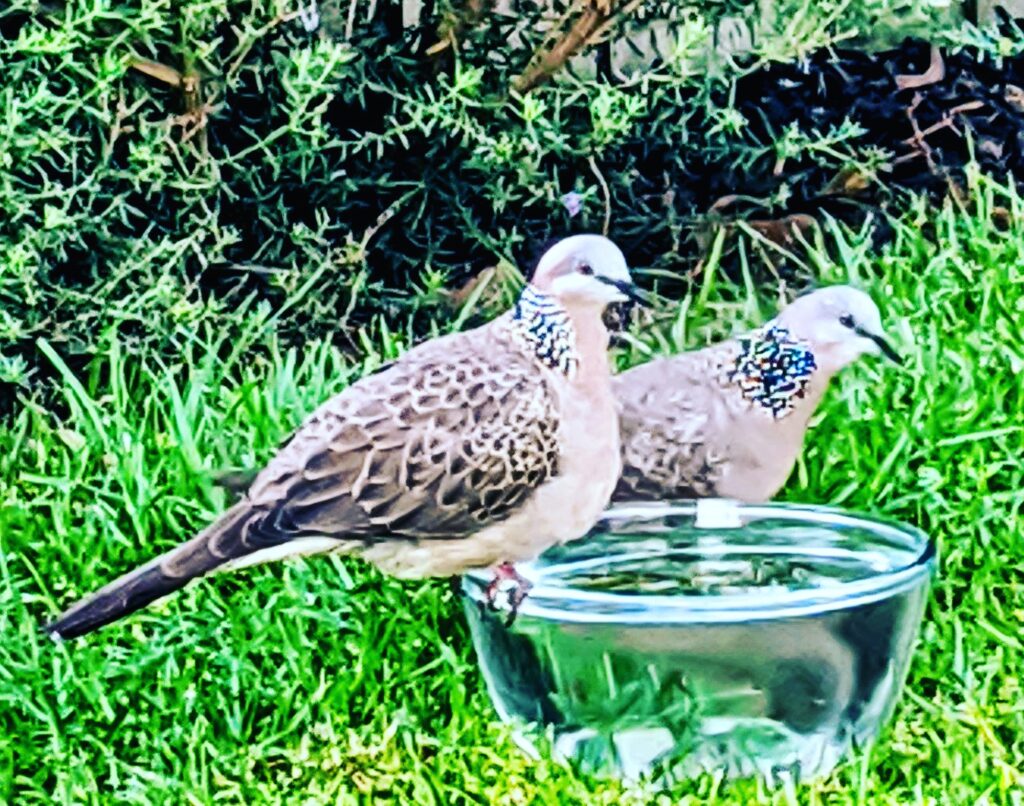
Pandemic living is existing in a place where the past feels so distant, the present drags on endlessly and the future unable to be envisaged when this uncertainty reigns. Pandemic has given me foresight, insight and hindsight as to what is important in my very complicated book of ‘what matters to me’, in all my identities. The public versus private of who I am and who I claim as connected, the trivialities of what was before and the core of what matters now. Things have irrevocably changed and right now I’m walking on stilts gingerly over the fragile water in the hope that those ripples don’t become movements to destabilise and topple me over.
For brief moments of the day, I sit inside and catch the sun reflected through the window giving me warmth. Outside is a small theatre of birdlife to view from my dress circle – Freddie and Fred, the two spotted doves, a male Blackbird so dark Black with striking orange beak and his female companion, flighty group of Honeyeaters and sparrows darting in and out. Sometimes a minor or a wattlebird may visit briefly. They all share the space with little argument. I like to think that they know this small space as a haven which allows them peace, as they allow me mine. To watch them throughout the day also teaches me about cohabiting a space that is fragile survival, yet with the ability to see glimpses of magic in each embodiment of that.
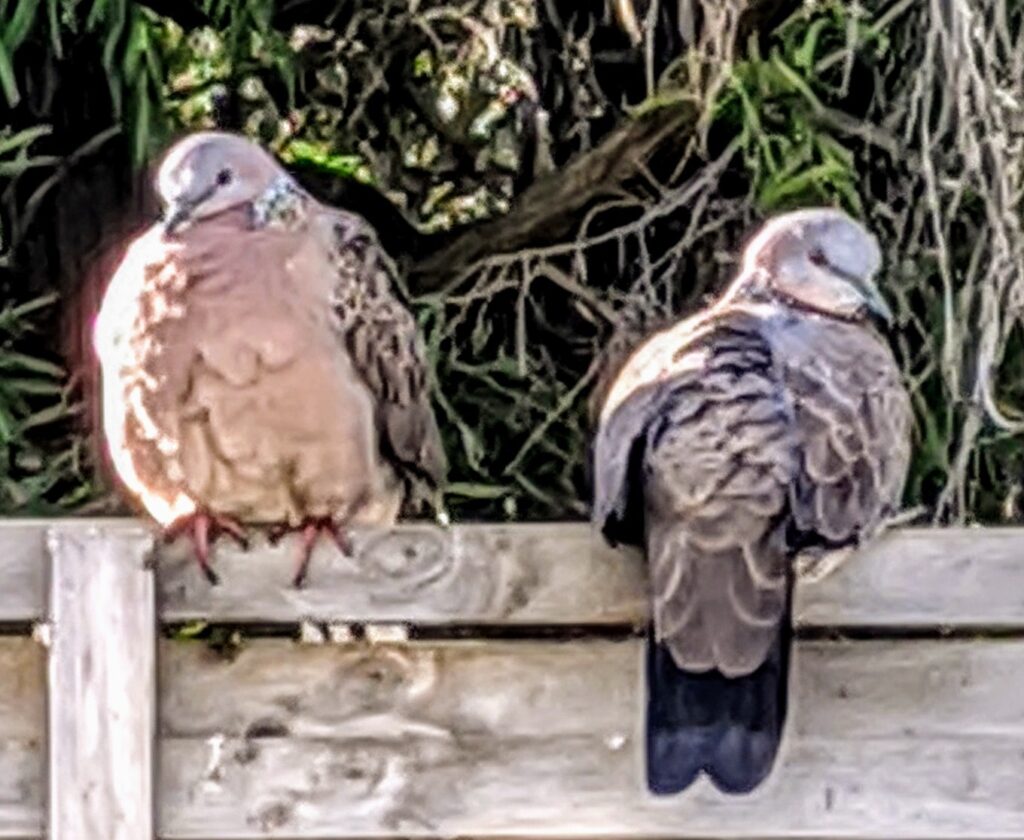
The birds have a type of system, but it is relaxed. They arrive in the morning, the ‘Freddies’, sparrows and occasional honeyeaters. Freddies sit on the fence together and enjoy the crisp winter air, some days feeling the cold a little more as they plume their feathers and preen each other.
The sparrows enjoy a small bird feeder and within their group there are some who enjoy the task of breaking apart the seed structure more than they do of eating it. They feed the sparrows waiting down on the garden floor as seeds descend from the feeder like drops of water.
The honeyeaters are only momentarily in any one space at any time, flying in swiftly to scrape their beak on the fence for cleaning or drink in the water from the two bird baths below. Recently, they have been suckling on the nectar from a Silver Princess eucalyptus tree, the red flowers hanging low from its frame allowing the honeyeaters to hang suspended as they drink. One time the Freddies brought two of their young to us and the four of them sunned on the deck in front of our glass window, basking in sunlight and enjoying a family moment before their babies flew off to find their own special space of sun and quiet abundance.
Since COVID has been in our lives, I have made it an important part of my day to notice the birds who frequent my little back yard. On our neighbourhood walks we count the many species of birds we may see. Starlings, Blue fairy wrens, ravens, seagulls, cormorants…so many in one suburban locale cohabiting with us. Being able to take moments of my day to witness their lives means so much to me. How can something so simple provide so much, and so many different things all at once?
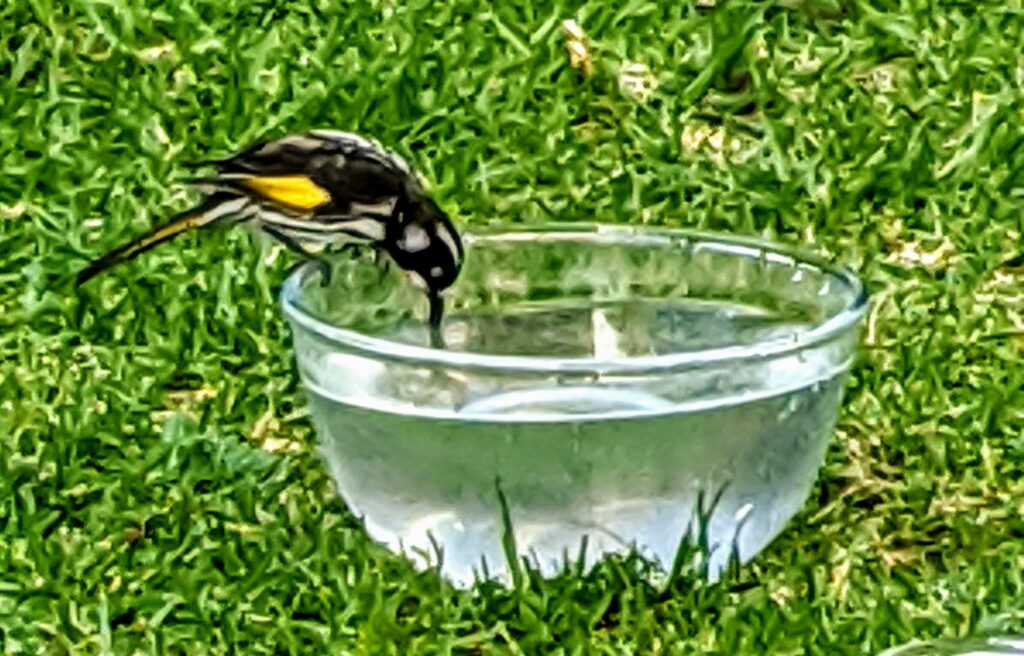
I am resting in their meandering, in their routines and their couplings. I am seeing their everyday and comparing it to ours, thinking of isolation and poor health while seeing that their freedom has rules too. They also have to survive, shelter, and seclude themselves with the necessities for nurture and care.
As I struggle to feel purpose, as I feel that everything seems shaky and I can’t find my life as it used to be, I am nestled in my nest with what I need for nurture and care just as they are. We are bonded now in this knowing and duality of flight in their freedom and safety in my secure isolation. That alone gives me a chance to breathe in and out again.
Dr Tess Ryan is an Indigenous woman of Biripai country in Taree, New South Wales, and wears many hats, including as scholar, writer, artist and president of the Australian Critical Race and Whiteness Studies Association. She has a PhD in leadership and Indigenous women in Australia and writes about Aboriginal and Torres Strait Islander women, feminist power, media representation, leadership and Indigenous research, and has also worked in public health and education.
Read the #CroakeyEXPLORE series
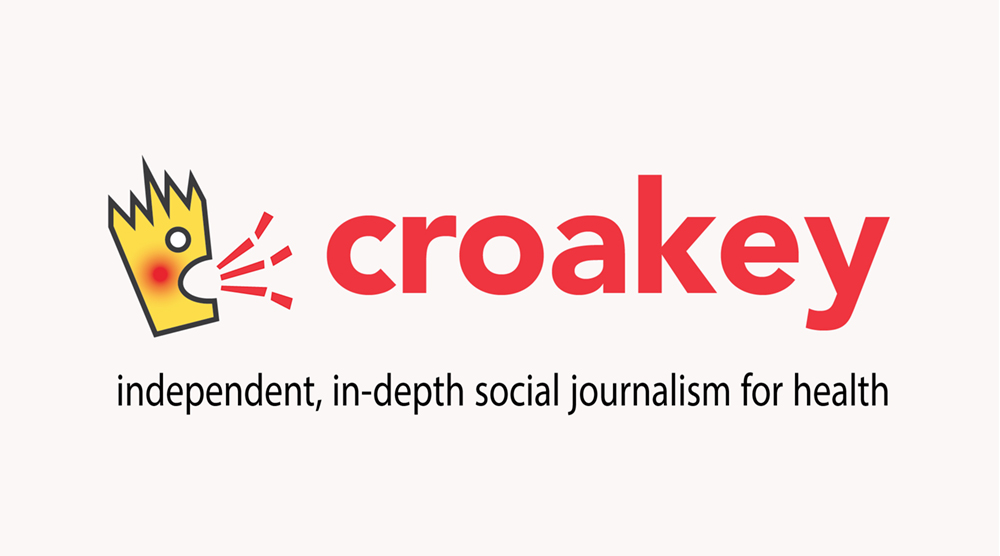

TODAY’S FEATURED BOOKS
